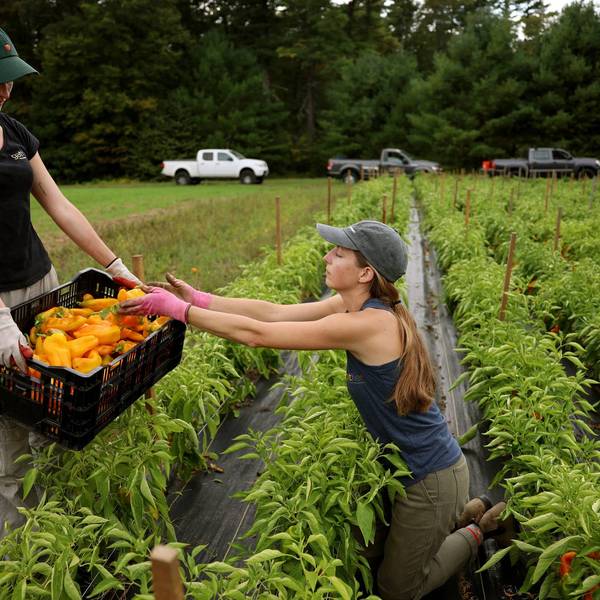Big Ag could score some big wins under newly confirmed Attorney General Jeff Sessions, roughly 325 food and farm groups warned on Monday, urging Sessions to reject agricultural mega-mergers that would put corporate interests above public health, small farmers, and the environment.
In a letter sent to Sessions and copied to members of Congress and state attorneys general, the massive coalition of organizations pointed to the "adverse and wide-ranging consequences" of three pending mergers between agrichemical and seed companies: Dow Chemical with DuPont, Monsanto with Bayer AG, and Syngenta with ChemChina.
"When taken together," the groups wrote of the deals that will be considered by the Sessions-helmed U.S. Department of Justice, "they pose the threat of major oligopolistic outcomes in the industries of farming inputs, research, development, and technology."
And that could hurt some of the very people who Sessions' boss, President Donald Trump, promised to help on the 2016 campaign trail.
"Farmers across the country know that these mergers will result in fewer options and higher prices for the inputs we rely on," said Mike Weaver, president of the Organization for Competitive Markets, among the letter's signatories. "Already, a third of what a farmer makes for a corn harvest goes to pay for the seed alone; in the end there is nothing left for the farm family. We've seen what happens when too few companies control too much of the market, and these mergers would only make a bad situation worse."
According to experts, if all three deals were to close, the newly created companies would control nearly 70 percent of the world's pesticide market, more than 61 percent of commercial seed sales, and 80 percent of the U.S. corn-seed market.
"Conglomerates of such massive scale, breadth, and reach, such as those proposed by these mergers, pose a real risk to our economy, to our agricultural sector, to public health, to food security, to the environment, and to the general health of the agricultural and food business climate," the letter (pdf) reads. "Dominance of this magnitude can pose both domestic and international consequences that would be irreversible, once set in motion."
Speaking specifically to one major issue of the 2016 campaign, the letter notes:
These mergers should also be examined in the context of exacerbating income inequality. Although there are many views, some conflicting, on income inequality itself, no developed nation can escape its responsibility to maximize the opportunities for its poor to be able to afford a broad range of nutritional foods. Today, in most developed nations, the relatively low price of food products minimizes the adverse impact of often growing income inequality. Many consumer groups [...] believe that these mergers have the potential to substantially alter the present relatively affordable basic food industry.
In addition to higher prices for consumers, the merger could result in harms to agricultural workers. Some farmers will likely offset declining profit margins by cutting back on labor costs. For example, they may hire fewer workers and make them work harder, offer lower wages and benefits, and some unscrupulous growers may even engage in wage theft.
As Common Dreams has reported, Sessions' position on antitrust issues is less clear than his stances on other matters such as voting rights or LGBTQ protections. But the groups said Monday that Sessions' responses on mergers during his January confirmation hearings were "evasive and vague."
Not to mention that Trump met even before his inauguration with representatives from Bayer and Monsanto and indicated he was ready to "bless the merger based on a jobs pledge," as Tom Philpott wrote for Mother Jones--which raised concerns at the time among antitrust experts.
Indeed, Trump's promises to "drain the swamp" of corporate influence have been undercut by his administration's kow-towing to big business since his election in November. The mega-mergers under consideration would be just one more example of this trend, food and farm groups said.
"These proposed mergers only put more power and influence on the side of agribusiness, which contributes to but does nothing to pay for the health impacts on families of the chemicals they produce," said Jeannie Economos, pesticide safety and environmental health project coordinator for the Farmworker Association of Florida. "People should not pay with their health and lives for the profits of these mega-corporations."
Added Tiffany Finck-Haynes, food futures campaigner at Friends of the Earth: "We call on Sessions to put the interests of the American people, workers, and farmers above the interests of mega-corporations and conduct an independent review process free of political interference."



